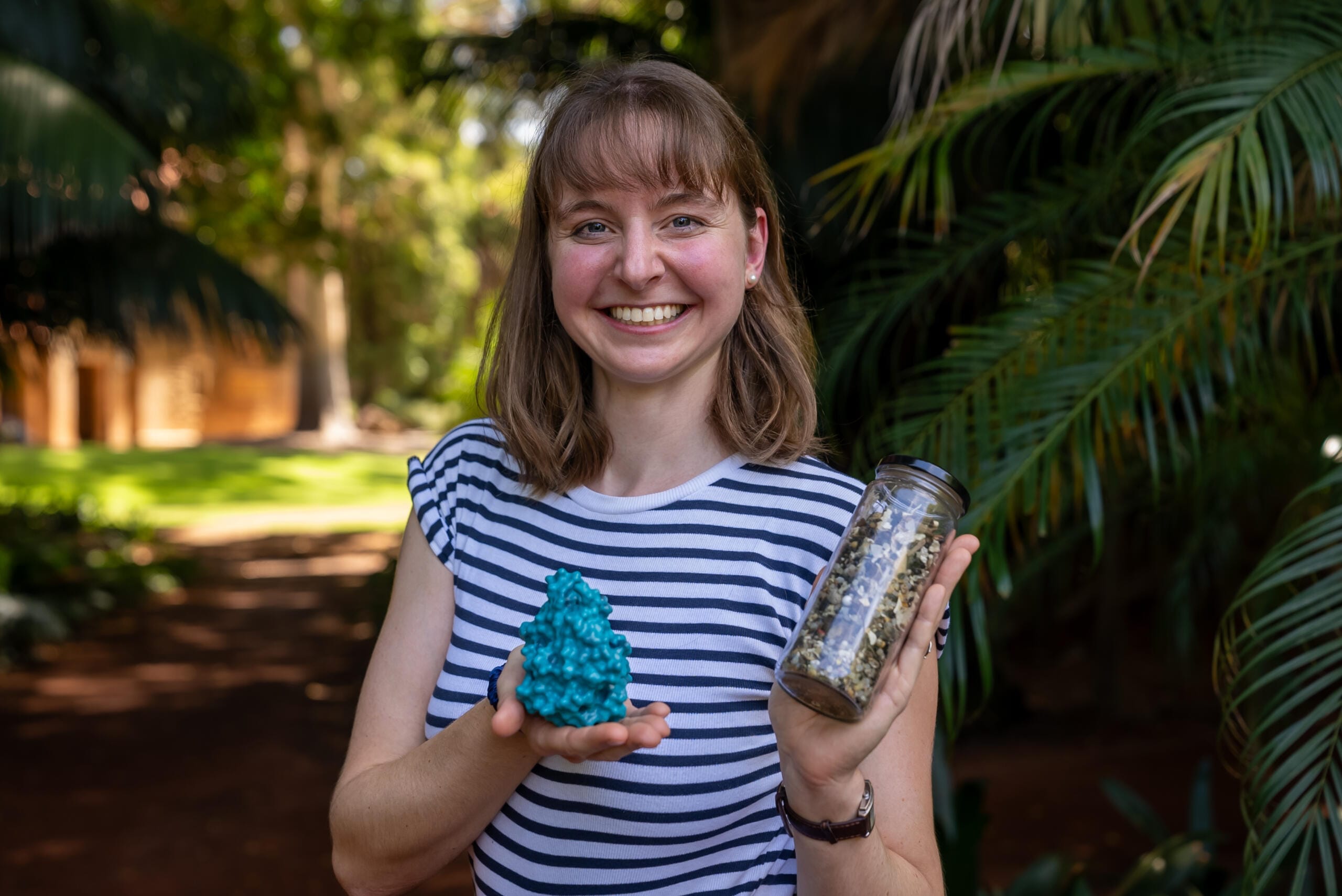A Perth based researcher, who describes marine microbes as ‘tiny heroes’ says the organisms can play an important role in tackling the growing problem of plastic pollution in the ocean.
Forrest Research Foundation scholar, Anna Faber, gave a presentation to students as part of the Western Australian Marine Science Institution’s Thinking Blue school outreach program and explained how she was engineering marine bacteria to degrade certain types of plastics.
Ms Faber, who is a PhD candidate at The University of Western Australia, said sailing for 29 days from Brazil to South Africa four years ago gave her an appreciation of the ocean and how vulnerable it is to human impact.
“We saw plastic that was thrown or blown into the water and generally signs of humans everywhere,” Ms Faber said.
“There is an estimated 12 million tonnes of plastic ending up in the oceans every year and the equivalent of one truckload of plastic waste is added every minute.”
“There are about 500 times more plastic particles in the oceans than stars in the galaxy.”
“We will end up with more plastic than fish in the oceans by 2050 if we are not careful.”
Along with spearheading education campaigns around reducing single use plastic consumption and exploring how plastic waste can be turned into a resource, Ms Faber’s research at the Fritz Lab is focused on the use of microbes.
“In our team, we look into the ocean to find heroes and we have found microbes,” Ms Faber said.
“There are about 100 to 150 enzymes, produced by bacteria and other microbes, that can attack plastics.”
“Enzymes chop up the building blocks of plastic so they are no longer plastic molecules.”
“I am currently looking for new enzymes in the ocean which involves taking sediment samples along the Perth estuaries.”
Plastic degradation in nature is a slow process so engineering bacteria to eat plastics faster is also an area of her work.
The research scientist, who completed an undergraduate science degree in Marburg Germany said plastic pollution is not a ‘distant’ problem.
Ms Faber showed the student audience a jar of small objects she’d collected about one kilometre from Fremantle Harbour.
“A lot of this is plastics from ships including small, round nurdles which are melted down to make plastic products in Western Australia.”
She said current efforts of mechanical recycling, using kerbside collection materials, was not the final answer to the plastic problem.
“In Australia, we only reuse and recycle 7 per cent of plastic. The world average is 9 per cent so a lot of plastic ends up in landfill.”
“Depending on the recycling method, there is also a lot of energy that goes into recycling and the end products are often of low quality so we can’t recycle our way out of this plastic waste problem.”
“We need alternatives.”
For this reason, Ms Faber and her colleagues in the Fritz lab, also work on making more sustainable biodegradable plastic alternatives using her beloved marine bacteria.
Plastics in the ocean can carry toxins and invasive species and are also ingested by marine animals.
Anna Faber said her motivation for embarking on a PhD and the drive behind her passion for science was to ‘embrace the future as something we can all improve and shape’.
She encouraged her student audience to become advocates for the ocean and look for solutions to make it healthier.
See Anna’s presentation here.




